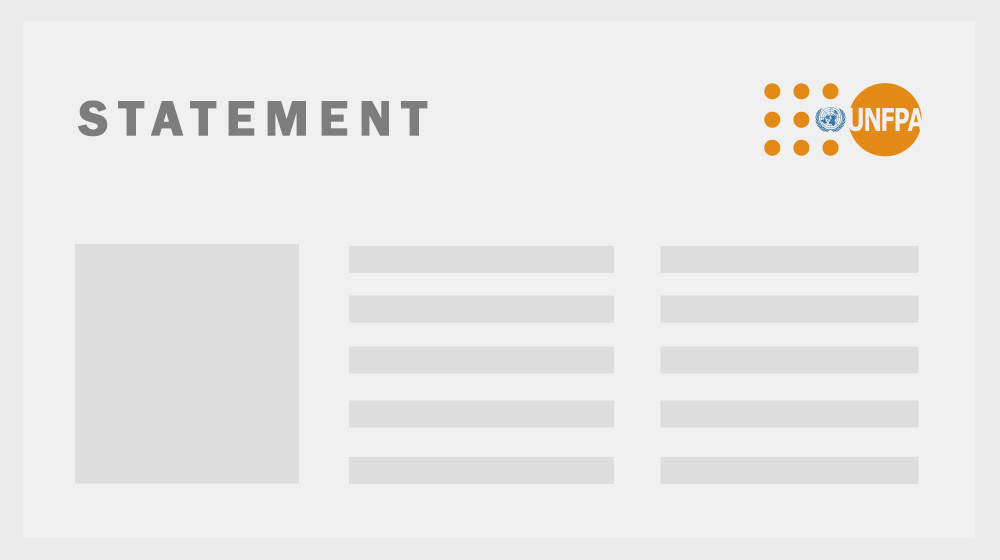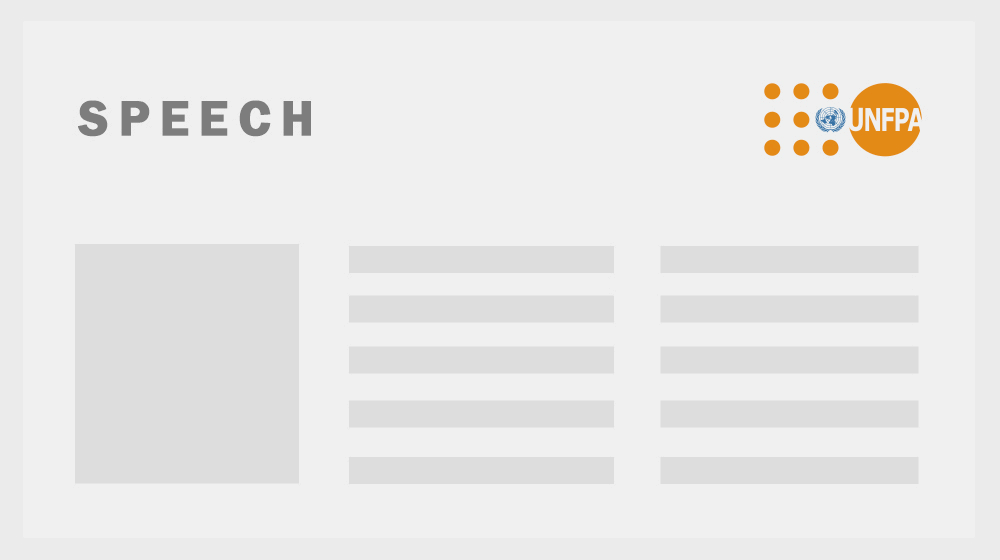Remarks by UNFPA Executive Director Dr. Natalia Kanem at the 56th session of the Commission on Population and Development high-level side event “Advancing the ICPD25 commitments in the context of sustainable development using a framework of sexual and reproductive health, rights and justice”, 10 April 2023.
Your Excellency Michaëlle Jean, 27th Governor General of Canada, and 3rd Secretary General of the International Organization of la Francophonie; Distinguished Co-Chair of the High-Level Commission on the Nairobi Summit on ICPD25 Follow-up;
Distinguished Members of the High-Level Commission;
Representatives of the Governments of Denmark, Kenya and South Africa – co-sponsors of our event today along with the International Planned Parenthood Federation;
Colleagues, partners and friends,
Warm greetings to all, both in the room and online. Thank you for joining this side event on the opening day of the 56th session of the Commission on Population and Development.
The CPD is an invaluable opportunity to engage with Member States and reinvigorate support for the implementation of the ICPD agenda, which is crucial to achieve the Sustainable Development Goals.
As the 2030 deadline for the SDGs draws closer, keeping the promise of the landmark ICPD Programme of Action assumes greater urgency.
At the heart of that promise is the conviction that population is not about numbers, but about people. That women and girls must be placed squarely at the center of sustainable development. And that rights and choices are essential for every human being to thrive.
As we carry forward the journey that began in Cairo in 1994 and took us to Nairobi three years ago, we recognize that, despite progress, we still have a lot of work ahead of us.
Yet, we are as determined as ever to deliver life-saving and life-changing results.
After the Nairobi Summit, UNFPA established a High-Level Commission to monitor progress on the ICPD25 commitments, including the bold actions needed to get to zero preventable maternal deaths, zero unmet need for family planning and zero gender-based violence and harmful practices.
The body of work that the independent High-Level Commission has produced highlights the progress made post-Nairobi and where efforts need to be scaled-up.
I thank the High-Level Commission for its two excellent reports – No Exceptions, No Exclusions: Realizing sexual and reproductive health, rights and justice for all, released in 2021, followed by last year’s Sexual and reproductive justice as the vehicle to deliver the Nairobi Summit commitments.
As the HLC wraps up its work and we prepare for the ICPD30 review process in 2024, we will continue to push for the implementation of the Nairobi commitments.
Clearly, this is no time to step back.
Covid, conflict, food insecurity, climate-related disasters – all are slowing down development progress, especially for women and girls. We are witnessing women’s rights being subverted; their needs neglected; and political pushback from different corners.
Despite these challenges, we are keeping our eyes firmly on the prize: a world where every pregnancy is wanted, every childbirth is safe and every young person’s potential is fulfilled.
Education underpins each of these goals. When young people, especially girls, can finish their schooling, they can navigate their reproductive choices and chart their own future. Education levels, fertility rates, maternal mortality ratios — all are inextricably linked.
That is why, as Secretary-General Antonio Guterres has noted, “education systems should promote the physical and mental health of all students — including their sexual and reproductive health”.
Too many young people receive incorrect, conflicting and confusing messages about sexuality and reproduction – with serious risks to their health and wellbeing.
Comprehensive sexuality education allows young people to safeguard their health and well-being and exercise their bodily autonomy. Such programmes provide them with crucial knowledge and skills, and the confidence to make good decisions that will strengthen them in later life.
The latest report of the High-Level Commission reaffirms that girls’ education is central to the achievement of the Nairobi commitments. It highlights the importance of comprehensive sexuality education, as well as curricula that tackle gender-based prejudices, norms and stereotypes.
Distinguished guests,
Many of you are invested in making good on the Nairobi commitments and realizing sexual and reproductive health, rights and justice for all people, everywhere.
It will take all of us working cohesively, within our respective areas of expertise, to advance the gains and to address the gaps between women and girls and their rights and choices.
As we position the ICPD agenda for the future, let us heed the recommendations of the ICPD25 follow-up processes and build on the evidence and data from the forthcoming ICPD30 review.
Let us step up and speed up our collective efforts, and show greater ambition and urgency around the implementation of the ICPD Programme of Action, drawing on the Nairobi commitments.
This is the path to sexual and reproductive health, rights and justice for all – the path the High-Level Commission showed us – and the surest way for us to achieve the Sustainable Development Goals.
When we stay faithful to these building blocks of prosperity and peace, we can create healthy societies where everyone lives in dignity, exercising their rights and flourishing in full equality.
Thank you.



